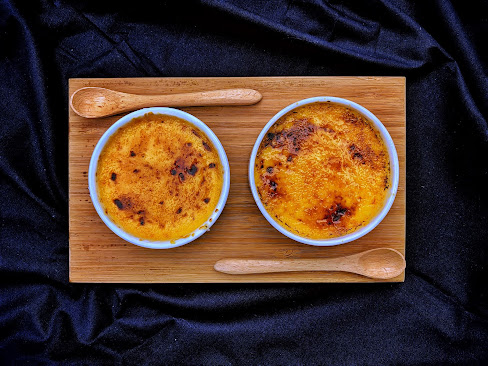North-West Singapore lies an expanse of farmland and wetland reserves. For walking enthusiasts, Sungei Buloh Wetland Reserve is a particularly lovely place to visit in the early morning. Their walking trails take you past forests, mangroves and coastal regions, which are home to regional wildlife. During the migratory season from September to March, shorebirds can also be spotted as they fly in from northern regions to avoid the winter chill.
Bollywood Veggies is a place that I've been wanting to go to. Several people had recommended this place to me within a few weeks of one another, which was rather serendipitous. Also, a little scary. Anyway, we reached the café, in time for what I'll say was an early lunch, but the place was so popular, it was already running at full capacity.
The café occupies a small part of their 10-acre estate, with the remaining land dedicated for growing produce. And it is a marvel to see what they've done with the place. All sorts of tropical plants were growing on small plots side-by-side. Copious amount of butterfly pea vines can be found (and their blue pea flowers can be seen on the food their café serves), and banana groves co-exist with canola plants and fig trees. There are many plants that I'd never heard of, such as a Crystal Fruit Trees. (Online sleuthing deduces taste like a cross between a longan and rambutan.) There's even a paddy field growing rice! Walking in further, I found the two plants closest to my heart: their coffee and cacao tree.
Cooking classes (Bollywood Bhanchha) also run at regular intervals throughout the year, and there is also a museum showcasing art exploring the relationship between civilisation and agriculture.
The good news about my planned day trip isn't just that we can stuff our faces with fresh food made from the gardens of the café. Our next stop is Farm 85 Trading. My companion is part of NTU's gardening club, and many of their bountiful harvest came as seedlings from Farm 85. So close to Farm 85, I couldn't resist the urge. Once there, we flagged down a helpful farmhand who showed us the plants they offer. I delightedly bought pots of basil (for pizza and pasta!), Chinese parsley, roselle, and wee sprouts of ladyfinger and eggplant. It's about $6 for each pot, and the farmhand threw in a pot of kale for free.
A month has passed since my visit, but I may still get a little teary-eyed when recounting the moment where he told me I could take the pot of kale home with me. Speaking of which, I am now a dedicated supporter of Farm 85 and will no longer visit any other nursery in Singapore... :-)
Travelling restrictions aren't applied to only us tourists, as commercial trade of necessity goods have been similarly affected. The pandemic gave Singapore quite the food scare last year, with shelves on groceries stores emptied of pantry staples. Since then, the topic of food security have become a pressing concern, as fresh produce from our trading partners is no longer guaranteed. There have been a direction made towards supporting local produce. Walking into groceries stores nowadays, we can see vegetables grown locally marked distinctively from the rest. Ensuring a buffer of local produce against trading shock is a necessary step in national security, and the Agri-Food and Veterinary Authority of Singapore has been making investments into reviving and supporting local farmers. For those who are interested in Singapore’s new farming initiative, you can click on the link (it goes to Singapore Food Agency.)

















